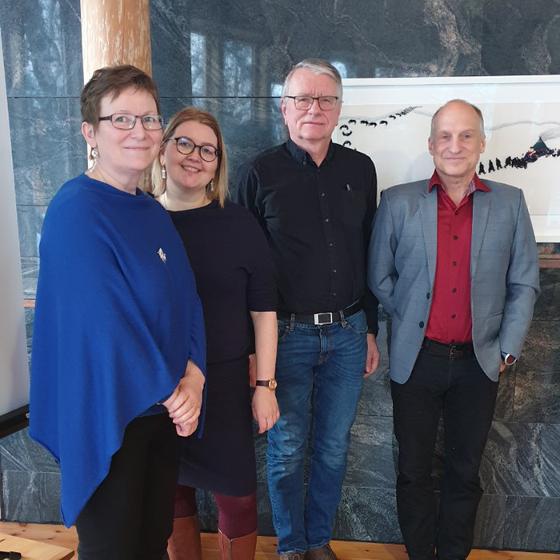Entangling Knowledge Systems: Indigenous knowledge, technology and industry
Alongside the Arctic Frontiers conference in Tromsø, leading member of the TriArc project Else Grete Broderstad hosted a lecture event at UiT focusing on the incorporation of traditional Indigenous knowledge systems into environmental impact assessments for industrial development projects.

TriArc member and lecturer at the Swedish University of Agricultural Sciences Per Sandström began by giving an overview of how he and his colleagues combine local Indigenous knowledge with new technologies to document and analyze the impact of industrial projects in Sweden. Sandström detailed several projects he worked on involving the close participation of Sami reindeer herding communities throughout the process from the proposal to examining results. In one example, reindeer herders use local knowledge and technologies such as GPS collars and drones to gather data on elements such as mapping lichen growth and reindeer movements, essential for creating a reindeer herding plan, a reindeer herding plan.Sandström also illustrated how this co-produced data has not only been published in academic journals, but also used in the Swedish courts over land rights and can serve to address future land use conflicts. Then moving to the Norwegian side of Sápmi, TriArc project member Einar Eythórsson and Elisabeth Librekt Olsen from the Norwegian Institute for Cultural Heritage Research (NIKU) gave a presentation on their analysis of the impact assessment studies cited by the Nussir mining company for the newly approved copper mine project in Repparfjord.The scholars pointed out that there are no formal methodological guidelines for impact assessment studies in Norway and so the seven studies they examined varied in their approach, lacked source transparency and included but failed to effectively utilize local Sami knowledge.
Beginning the discussion after the presentations, Lars Anders Bear commented on the benefits of approaching industrial projects from a legal perspective and TriArc member Sven-Roald Nystø pointed to the challenges of translating international law and norms on Indigenous rights to the local level in dealing with individual companies. From the engaging lectures and subsequent discussions, the event highlighted not only challenges for incorporating local Indigenous knowledge effectively into impact assessments, but also some positive examples of how entangling traditional “Western” academic and Indigenous knowledge systems through collaboration can address discrepancies in environmental impact assessments .
Last updated: 29.07.2020 02:44